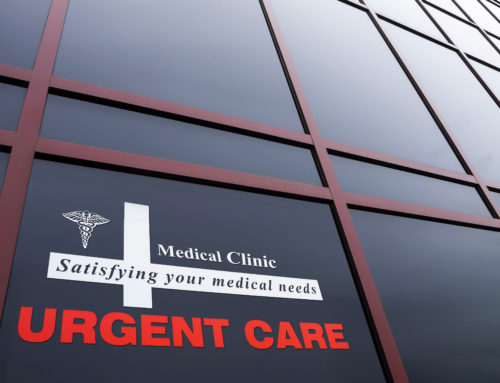A cesarean section, or “C-section,” is a surgical procedure used to deliver a baby. Obstetricians may recommend this procedure when natural delivery is not possible or is viewed as unsafe. However, in some cases, doctors may recommend a C-section inappropriately. Because C-sections can result in serious complications, performing this procedure unnecessarily puts patients at a significant and avoidable risk.
How Are C-Sections Performed?
Most C-sections are performed under regional anesthesia, which means the mother remains awake during the procedure. However, in some cases, such as emergency C-sections, general anesthesia may be required instead. Once the mother is under anesthesia, the surgeon will make an incision in the abdomen, followed by an incision in the uterus. The surgeon delivers the baby through these two incisions. After the baby has been delivered, the surgeon removes the placenta and closes the incisions.
When Is a C-Section Necessary?
Obstetricians may recommend C-section in a number of different scenarios. Some of the situation in which an obstetrician may want to perform a C-section include:
- The baby isn’t in the right position. – If the baby is breech or in another difficult position, the doctor may feel that a C-section is safer.
- The baby is in distress. – If the baby isn’t getting enough oxygen, has the cord wrapped around its neck or is otherwise in distress, the doctor may recommend an emergency C-section.
- Specific pregnancy complications exist. – Certain pregnancy complications, such as very high blood pressure, placenta previa, multiple pregnancy or a mechanical obstruction, may necessitate a C-section.
- Labor is stalled. – If the mother isn’t making sufficient progress during labor, the doctor may recommend a C-section.
- History of previous C-section. – In most cases, doctors recommend a repeat C-section if the mother has had a C-section in the past.
Possible Complications
C-section is a major surgery that carries a number of risks. Some of the possible complications of C-sections include:
- Long recovery. – Mothers who undergo C-sections face a longer recovery period than those who give birth vaginally.
- Infections. – Like any major surgery, C-sections pose a risk of post-surgical infection to the mother. Women who undergo C-sections may also contract an infection of the uterus itself.
- Injuries. – During the procedure, the surgeon may injure other organs located close to the uterus.
- Blood clots. – Some patients develop blood clots following a C-section.
- Blood loss. – C-section results in more blood loss for the mother than a vaginal delivery.
- Anesthesia complications. – Some women experience complications related to anesthesia, such as a severe headache.
- Risks in subsequent pregnancies. – Mothers who have had one C-section face elevated risks if they get pregnant again in the future.
C-section procedures can also be risky for the baby. During the procedure, the surgeon may accidentally injure the baby. In addition, babies who are delivered via a scheduled C-section are at an increased risk of breathing problems.
Why Do Doctors Order Unnecessary C-Sections?
If a patient meets one or more of the requirements above, a C-section may be the best option. However, in many cases, doctors order C-sections even when the patient could complete a vaginal birth safely. A doctor may make this decision because he or she is worried about future liability if a complication develops, or because he or she feels pressured by the patient to schedule surgery. Some doctors also recommend C-sections simply because it is more convenient to schedule a surgery than to wait for the patient to deliver the baby naturally.
What if a C-Section is Performed Unnecessarily?
If a doctor recommends a C-section when one isn’t medically necessary, the patient and/or her baby may develop complications that could have been avoided. In some cases, the baby and/or the mother may even suffer ongoing disability or death because of the unnecessary procedure.
When a C-section is unnecessary and results in the injury, illness or death of the mother or her baby, the doctor may be guilty of medical malpractice. In such cases, the patient or her family may be entitled to damages, including compensation for medical bills, disability, wrongful death and any other losses related to the procedure.
If you or a loved one has suffered because of an unnecessary C-section, having a medical expert testify on your behalf in court can help you build a stronger case. Contact Dr. Edward Mallory today to learn more.




























